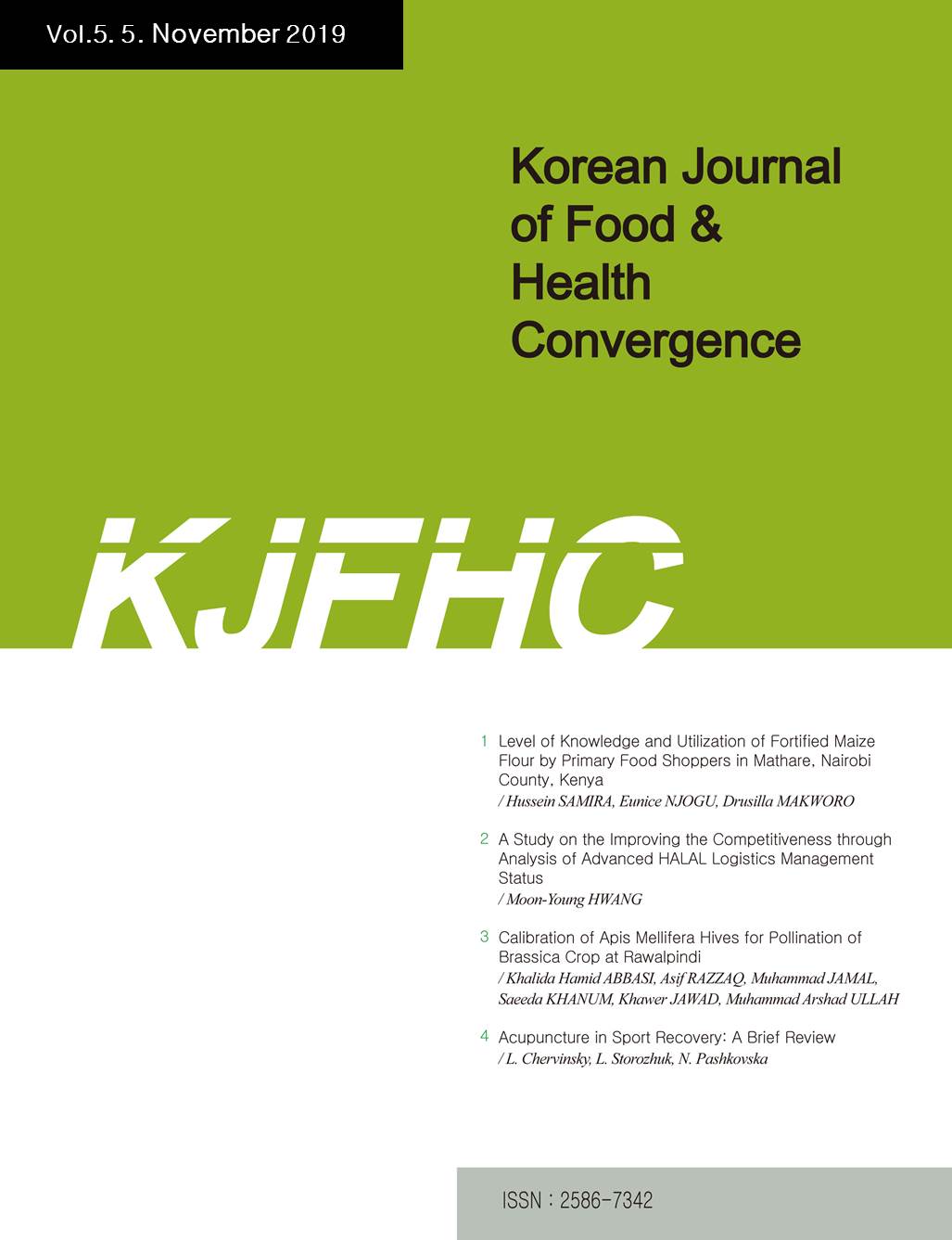 E-ISSN : 2586-7342
E-ISSN : 2586-7342
Vol.8 No.6
Abstract
Hypercholesterolaemia is one of the risk factors of coronary health in humans; hence this research was to investigate the effect of Parkia biglobosa seeds fermented with Lactobacillus plantarum on the cardiac risk factors of diet-induced hypercholesterolaemic Wistar rats. Hypercholesterolaemia in rats were experimentally induced and the hypercholesterolaemic Wistar rats were treated with iru samples. The total cholesterol, triglyceride, high density lipoprotein (HDL), low density lipoprotein (LDL), liver biomarkers and cardiac risks factors were determined after inducement and treatment with iru. Fourteen (14)-days after inducement, the rats in the group induced had the highest weight of 112.40 g while the control group had 94.30 g. The total cholesterol (TC) in the induced group was 100.80 mg/dl while the control had 51.40 mg/dl, triglyceride (TG) in the induced group was 111.75 mg/dl while the control group had 68.45 mg/dl. After 28 days of treatment, the group treated with fermented samples showed a reduction in the TC (100.80 to 56.99 mg/dl), Triglyceride (111.75 to 32.53 mg/dl), LDL (49.48 to 6.65 mg/dl), cardiac risk ratio (3.36 to 1.28), atherogenic coefficient (3.13-0.29) and atherogenic index (0.57 to 0.11). The result from this study reveals that fermented Parkia biglobosa sample reduced the cardiac risk of rats significantly.
Abstract
Emergency transport is directly related to the life of the patient, and rapid transport to the hospital is crucial. However, external environmental factors such as traffic or weather, interfere with hospital transport. In this study, we investigated the external environment affecting hospital transport time. We examined the transfer time and patient treatment time of emergency patients in an area of northern Gyeonggi-do from 2018 to 2020. Diagnosis after arrival at the hospital was used, and on-site treatment time was measured from paramedic arrival time at the scene to departure. Furthermore, we examined whether there was a correlation between the time paramedics left the scene and hospital arrival time through the reason for the delay as recorded in the emergency log. Traffic jams had the greatest impact on patient transport, while transport delays occurred due to heavy rain, but not snow. Among injured patients, electrical accidents were the most problematic in terms of on-site treatment time. This was because a lot of first aid is needed in electrical accidents. It must be necessary to mobilize two ambulances in an emergency through the expansion of infrastructure, prepare a plan for rapid transport in heavy rain, and implement strong laws against transport obstruction.
Abstract
Business intelligence (BI) is a process for turning data into insights that inform an organization's strategic and tactical decisions. BI aims to give decision-makers the information they need to make better decisions Patient safety analysis, illness surveillance, and fraud identification are just a few healthcare decision-making processes that can be supported by data mining. Thus, the purpose of the current research is to outline the need if BI as an essential factor in the healthcare sector by reviewing various scholarly materials and the findings. The present author conducted one of the most famous qualitative literature approach which has been called as PRISMA (Preferred Reporting Items for Systematic Reviews and Meta-Analysis) statement. The selecting criteria for eligible prior studies were estimated by whether studies are suitable for the current research, identifying they are peer-reviewed and issued by notable publishers between 2017 and 2022. According to the result based on the PRISMA analysis, BI plays a vital role in the healthcare sector and there are four business intelligence factors (Data, Analytic, Reporting, and Visualization) that will ensure that the healthcare sector provides the right healthcare services to the customers to be addressed in this section include; data, analytics, reporting, and visualization.
